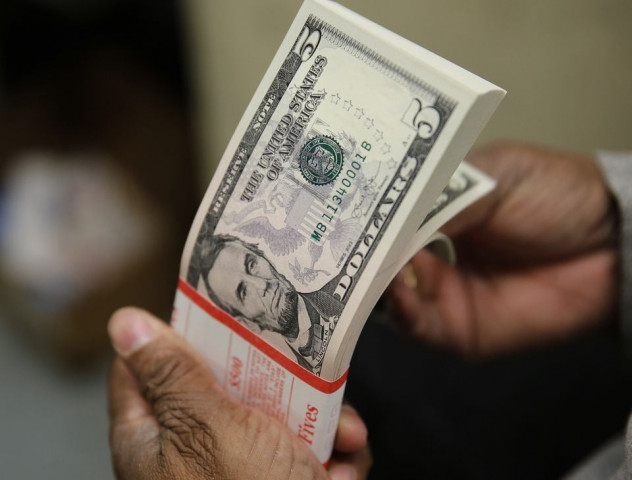Lack of consensus between centre, provinces delays $700m loan
Provinces unwilling to apply FBR’s property valuation rates, uniform sales tax

Fissures between the centre and provinces over a uniform sales tax system and property valuation rates across the country have delayed the approval of two foreign loans worth at least $700 million amid the federating units’ reluctance to accept the centre’s position.
The World Bank has indicated that it will give a minimum $350 million loan subject to the implementation of two prior conditions.
The conditions are that provinces will adopt the Federal Board of Revenue’s (FBR) property valuation rates and there will be uniform sales tax on goods and services across the country.
The Asian Infrastructure Investment Bank (AIIB) has also indicated that it will match the World Bank’s lending, which brings the total financing to $700 million.
But both of these conditions remain unimplemented as the provinces are not willing to comply with the directive of Ministry of Finance, sources told The Express Tribune.
“The federal government is committed to implementing these conditions and is going to take up the issue with the provincial finance ministers in a meeting of the National Tax Council today (Wednesday),” said a senior official of the finance ministry.
Even Punjab, where the Pakistan Tehreek-e-Insaf (PTI) is at the helm, has refused to accept these conditions on the federal government’s terms, the sources said.
It is not legally possible for the government of Punjab to adopt the FBR valuation tables. If the FBR’s tables are adopted by Punjab, it will result in a decrease in provincial receipts, according to a letter written by the Punjab tax secretary to the finance ministry.
Finance Minister Shaukat Tarin on Tuesday met with Najy Benhassine, Country Director of the World Bank, to review progress on the Resilient Institutions Strengthening Programme (RISE-II) and discussed some prior actions to be taken for timely completion of the programme, according to a press statement of the Ministry of Finance.
Tarin said that Pakistan valued the financial and technical support provided by the World Bank for institutional reforms and economic development in the country.
Sources said that the meeting discussed the non-cooperative attitude of the provincial governments in meeting these conditions.
Pakistan remains a desperate borrower and has been signing many conditions for the sake of new foreign loans, sometimes without taking all stakeholders into confidence.
Minister for Economic Affairs Omar Ayub Khan has already requested the World Bank to increase the loan size to $500 million, which may result in matching of the loan by the AIIB.
The government of Punjab told the finance ministry that it had the most robust system of determining the property valuation rates in all 36 districts of the province, both in rural and urban areas, unlike the FBR that had limited capacity to determine the valuation rates only for a few urban locations in 24 districts.
The FBR recently notified new property valuation rates but it had to suspend them after serious anomalies were pointed out by the real estate sector players.
The authorities on Tuesday also discussed the delay in integrating the provincial and federal sales tax laws and a tax portal, which was another very crucial condition, set by the World Bank for the loan and also mentioned by the International Monetary Fund (IMF) in its latest report on Pakistan.
The condition cannot be implemented until the provinces amend their general sales tax (GST)-related laws.
The federal and provincial finance departments are required to issue and implement new regulations following the approval of common GST laws passed by the federal and provincial assemblies to generate a harmonised GST for goods and services across the country.
Sources said that Sindh and Punjab had serious reservations about that condition and wanted it to be implemented in a phased but gradual manner.
To a question, the World Bank’s Islamabad-based spokeswoman said that Pakistani authorities did not request the World Bank to exclude any province from the ongoing GST harmonisation.
“GST harmonisation requires common definitions of goods and services, common principles of taxation and common place of supply rules across all federating units,” she said.
“The World Bank appreciates the efforts of the National Tax Council to harmonise the GST across the federal government and all provinces.”
In December, the FBR had also planned to launch the single sales tax return filing portal without first developing a legally compliant and well-integrated system. The online portal is one of the World Bank conditions to approve the loan.
At present, six tax authorities are operating in the country and receiving sales tax returns separately. These are FBR, Punjab Revenue Authority (PRA), Sindh Revenue Board (SRB), Khyber-Pakhtunkhwa Revenue Authority (KPRA), Balochistan Revenue Authority (BRA) and Council Board of Revenue AJK.
There are different GST rates in the country as Sindh charges 13% GST on services, Punjab (15%) and the FBR charges 17% GST.
Published in The Express Tribune, February 9th, 2022.
Like Business on Facebook, follow @TribuneBiz on Twitter to stay informed and join in the conversation.



















COMMENTS
Comments are moderated and generally will be posted if they are on-topic and not abusive.
For more information, please see our Comments FAQ